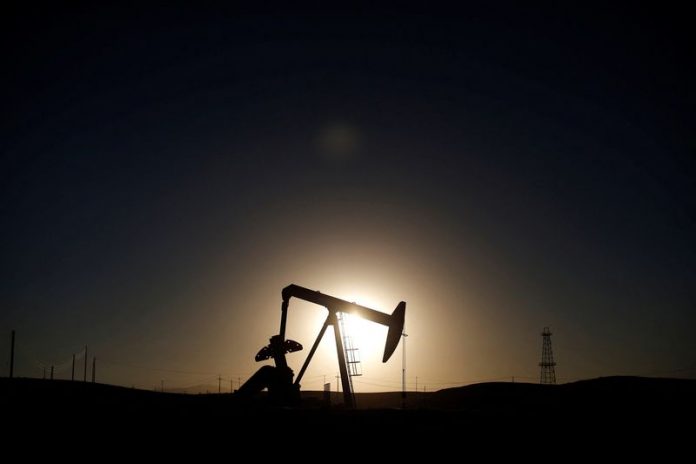(Reuters) -Oil prices extended gains on Wednesday after industry data showed a large draw in crude inventories in the U.S., the world’s biggest fuel consumer, and as concerns about a hurricane in the Gulf of Mexico kept investors on edge.
Brent crude futures for October climbed 29 cents, or 0.34%, to $85.78 a barrel by 0635 GMT. The October contract expires on Thursday and the more active November contract was at $85.22 a barrel, up by 31 cents.
U.S. West Texas Intermediate crude futures rose 37 cents, or 0.46%, to $81.53, logging its fifth session of gains.
Both benchmarks rallied more than a dollar on Tuesday as the U.S. dollar slid after prospects of further interest rate hikes eased following softer U.S. job data.
U.S. crude stocks declined by about 11.5 million barrels in the week ended Aug. 25, according to market sources citing American Petroleum Institute figures on Tuesday. Analysts polled by Reuters prior to the data had estimated on average a draw of 3.3 million barrels.
The bigger-than-expected draw in U.S. crude oil stockpiles is positive for the oil market as it suggest firm demand, said Toshitaka Tazawa, an analyst at Fujitomi Securities Co Ltd.
At the same time, investors bought futures on concerns surrounding Hurricane Idalia, which is churning over the Gulf of Mexico to the east of major U.S. oil and natural gas production sites.
“Concerns over the Hurricane Idalia prompted fresh buying,” said Tazawa.
The offshore Gulf of Mexico accounts for about 15% of U.S. oil output and about 5% of natural gas production, according to the Energy Information Administration (EIA).
Oil major Chevron Corp (NYSE:CVX) evacuated some staff from the region, but production was continuing at the sites its operates in the Gulf of Mexico.
Oil supply is expected to remain tight as analysts expect Saudi Arabia, the world’s biggest oil exporter, will extend its voluntary output cut into October.
Based on that expectation, refining sources surveyed by Reuters forecast that Saudi Arabia will raise its official selling prices for crude sold to Asia under long-term contracts in October to the highest this year.
Meanwhile, political unrest in Gabon could impact crude supplies from that country and tighten the market further. Gabon exported a monthly average of 160,000 barrels a day in May to July to Asia, Kpler shiptracking data showed.
However, worries about fuel demand and the mixed economic situation in China, the world’s biggest oil importer, kept a lid on prices.
While China’s economy regained some ground in July, following a contraction in June, the big picture is that various output indicators have levelled off recently and the economy could tip into a downward spiral unless policy support is ramped up soon, Capital Economics analysts said in a client note.




